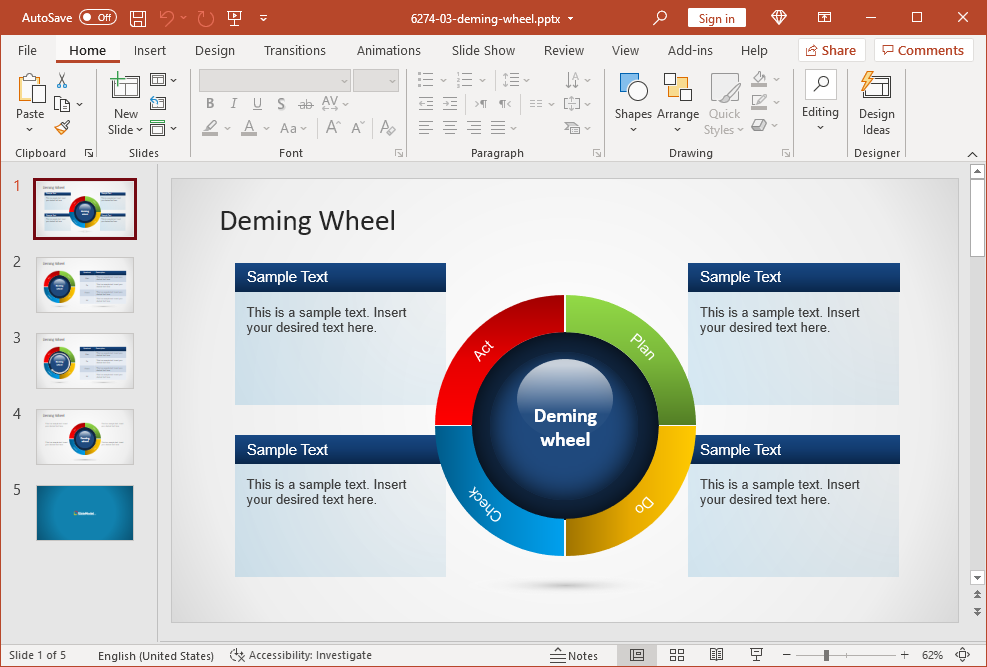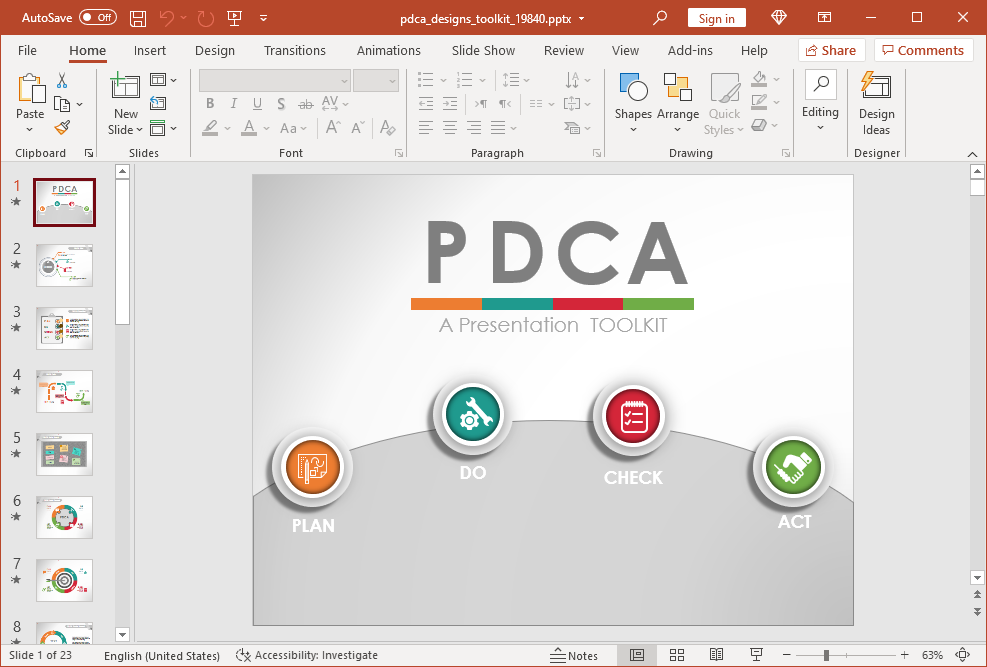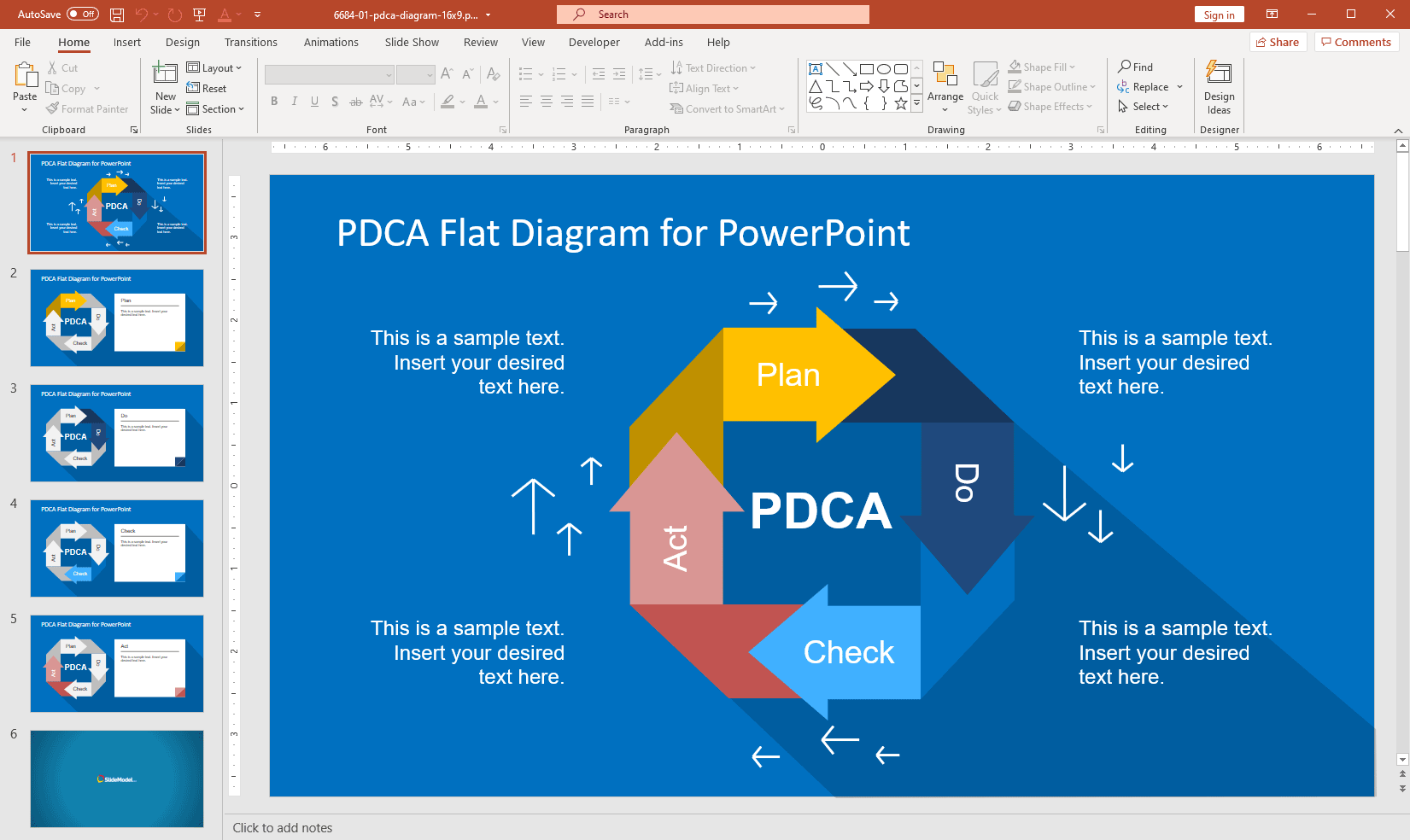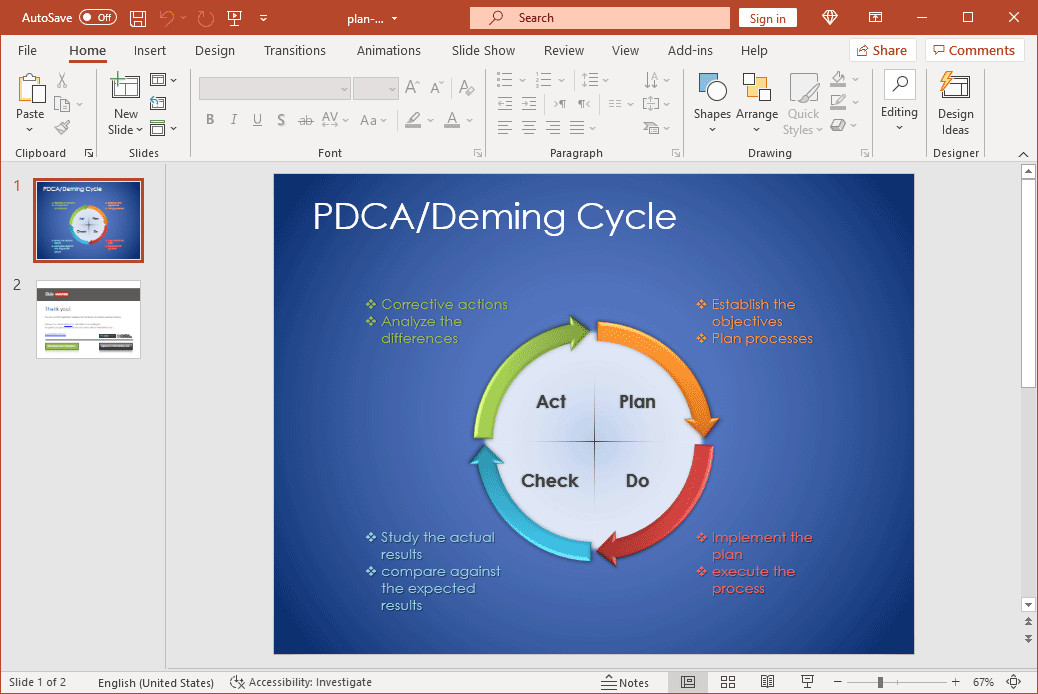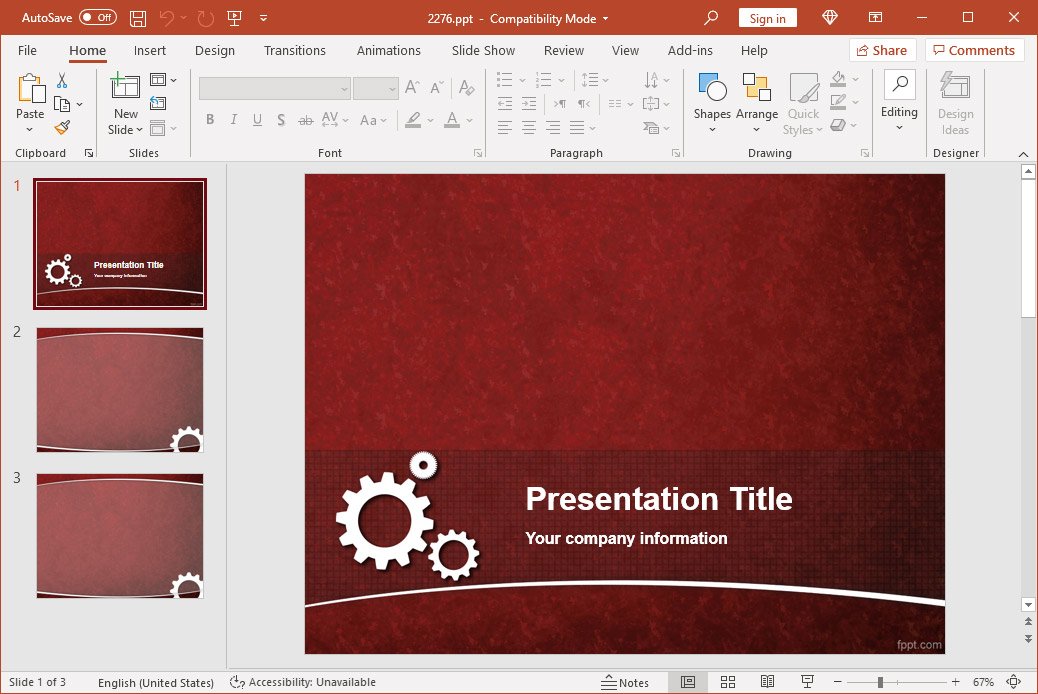What is PDCA and Best PowerPoint Templates
Products and processes can often end up quite different from expectations. Making it hard to understand why they might have failed to produce desired results for businesses. A method to better understand this is called PDCA or the Deming Cycle. In this article, we will explain the specifics around the use of PDCA. Followed by a list of the best PDCA PowerPoint templates to make presentations to explain PDCA and the results associated with your findings from the Deming Cycle.
What is PDCA?
Also known as the Deming Cycle, PDCA stands for Plan, Do, Check and Act. It is a method used for the continuous improvement of processes or products by businesses. PDCA is a cycle that consists of four stages including planning, doing, checking, and acting.
What is the Main Goal of using the Deming Cycle?
PDCA was made famous by the father of modern quality control, W. Edwards Deming. He during the 1950s introduced the method to understand why some products or processes were not up to the mark. Another variant of PDCA is called PDSA which stands for Plan, Do, Study, and Act. This was the previous iteration of PDCA which was used by Walter A. Shewhart during the 1920s.
PDCA is now widely used to formulate theories and better understand how to make products and processes work better by testing those theories. PDCA is used for not only the continuous improvement of processes and products but also to maintain control and to continuously improve them.
What are the Four Stages of the Deming Cycle?
The Deming Cycle has four stages called Plan, Do, Check and Act. Let’s explore these four stages and their importance in the cycle.
Stage 1: Plan
This is the phase when a business establishes objectives and determines the required processes in order to achieve desired goals. The planning process is the first phase of the Deming Cycle and lays the groundwork for what is to come.
Stage 2: Do
The second stage involves carrying out the objectives set during the planning stage. In other words, to ‘do’ what was planned.
Stage 3: Check
The third stage checks the data gathered from the second stage. This process analyzes the data to understand if the change can be useful or even if the ‘change’ itself can be further improved to acquire a better output.
Stage 4: Act
The ‘Act’ or ‘Adjust’ phase is the fourth stage of the Deming Cycle when a process is improved based on the findings of the ‘do’ and ‘check’ stage.
What PDCA Means for Project Management?
PDCA is used for the control and continuous improvement of processes and products. For a project manager, PDCA can help identify issues, test solutions and implement the best possible methods for improvement.
Best PDCA PowerPoint Templates
To explain the Plan, Do, Check, and Act cycle in the form of a presentation, you can use the following PowerPoint templates. These templates can not only help you explain PDCA but also discuss your findings and analysis for continuous improvement and the identification of what needs to change for the best possible output.
1. Deming Wheel Diagram Template for PowerPoint
The Deming Wheel Diagram Template for PowerPoint provides four sample diagrams depicting a Deming wheel. You can edit these slides to customize and create a PDCA diagram to show the cycle and explain its specifics by adding relevant information in the placeholders. The diagram created using this template can help a presenter easily explain the findings of PDCA for a business.
Go to Download Deming Wheel Diagram Template for PowerPoint
2. Animated PDCA PowerPoint Template
We previously reviewed the Animated PDCA PowerPoint Template that gives animated slides with editable diagrams to create a Deming Cycle presentation in PowerPoint. The template has versions for PowerPoint and Keynote, with more than a dozen slides that come with diagrams and clipart that can be used for making a PDCA related presentation with ease. You can use this template to create a slide for each step of the Deming Cycle to ensure that each stage is carefully scrutinized.
this template is like a toolkit that can be used for quickly making slides that can help you explain PDCA specific to the context you intend to cover in your presentation.
Go to Presenter Media – Animated PDCA PowerPoint Template
3. Flat PDCA PowerPoint Template
PDCA Flat Diagram for PowerPoint is another template that can be used to make presentations on the Plan Do Check Act cycle developed by Deming. The PDCA diagram can be used in PMP projects as a strategic 4-step management tool for process improvement, products and systems.
Go to Flat PDCA PowerPoint template by SlideModel
4. All-in-One Presentation Pack for PowerPoint
5. Free Plan Do Check Act PowerPoint Template
This is a free template to design a Plan, Do, Check, Act diagram in PowerPoint. The template gives a single slide with a pre-designed PDCA diagram that can be customized to suit your needs.
Go to Download Plan Do Check Act PowerPoint Template
6. Free Lean PDCA PowerPoint Template
This free PowerPoint template comes with a gear icon background where you can insert your PDCA diagrams and analysis. This is a rudimentary background template that is meant to be customized by the presenter.
Go to Download Free Lean PDCA PowerPoint Template
Final Words
PDCA is a concept that is widely used by businesses to ensure products and processes are able to remain efficient and can be continuously improved. Each stage of PDCA involves careful consideration and if one stage is flawed, the rest would also be affected. For example, you must determine the right goals in the first stage. Similarly, implementing your plan, checking results, and incorporating efficient methods is to be done after careful analysis of facts and associated results during the testing process of any theory. Jumping to conclusions or a flawed testing process can undermine the very purpose of PDCA.
During the PDCA process, you can use our recommended PowerPoint templates to discuss and brainstorm to determine the best course of action and to carefully analyze progress at each stage of your Deming Cycle.
We will send you our curated collections to your email weekly. No spam, promise!

